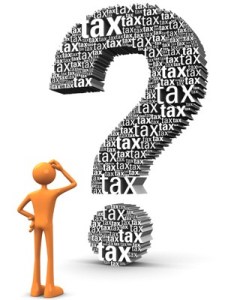The Most Important Tax Issues to Focus on This Year, According to the Experts

Taxes are never a fun process, and there can be a great deal of confusion about how much to pay or how to get the most money back. With tax season in full swing, many people are finding themselves lost in a flurry of financial advice that’s hitting them from all directions and it’s difficult to sort through all the noise. Here’s some advice from tax experts about what issues they consider the most important tax issues of 2015:
Review New Tax Rules
Every tax-paying family or individual has a unique situation and the only way to know how the code will affect each unique situation is by taking time to look at the new regulations. Among the issues that could affect families is the change to flexible spending accounts (FSAs) and health savings accounts (HSAs). While in 2013 money could be rolled over from the prior year, in 2014 carrying over the money makes one ineligible to participate in the HSA for 2015. There are also several other adjustments to consider regarding capital gains, deductions, and an alternative minimum tax.
Don’t Miss Out on Free Money
Believe it or not, there’s a good deal of free money going around, and it’s yours for the taking. Private wealth-manager George Papadopoulos has several suggestions for where people can get this free money, including participating in their employer’s retirement plan, using company insurance policies and employee stock-purchase plans, and taking advantage of credit card promotions.
For company retirement plans, make sure you are contributing enough to get all of the matching funds, which will also allow participants to enjoy the growing tax-deferred funds in future years. The health insurance plans offered by companies have a number of advantages, frequently offering flexible spending accounts for health and child care as well as health savings accounts. Stock-purchase plans can help employees purchase stocks at 10-15% below the market value, putting capital gain directly into the employees’ paychecks. Credit card promotions are a great way to collect free cash for every dollar spent, but make sure to choose carefully.
Consider Moving Certain Assets to Non-taxable Accounts
Where one is keeping their assets can also play a large role in how much they are paying or not paying in taxes. For instance, the government taxes bonds and stocks at different rates. Dividends and long-term capital gains are taxed at the relatively reasonable rate of 15%, while nearly all interest income is taxed at regular income tax rates, which can reach up to 35%. That’s why doing some shifting around and moving fixed-income assets to nontaxable accounts can minimize the amount of tax expenditures to which you’re exposed. Money in nontaxable accounts is also harder to access, but it’s important to consider moving assets to nontaxable accounts, as it could lead to significant savings.
Maximizing Roth IRA Savings
If you don’t have one already, a Roth IRA allows you to save for retirement in a nontaxable account as long as you meet certain guidelines. One of the ways to take advantage is to contribute the maximum you can every year. Use these contributions to focus on stock options, opting first for high-quality dividend growth stocks. Converting funds from a traditional IRA or 401(k) often allows people to pay less in taxes, though it’s important to plan out as the year of conversion will include the amount converted as part of taxable income. Finding out the specific details for how to save using Roth IRA is the best place to start.
For more information about the above topics and more, please contact an R&G Brenner tax professional today!





